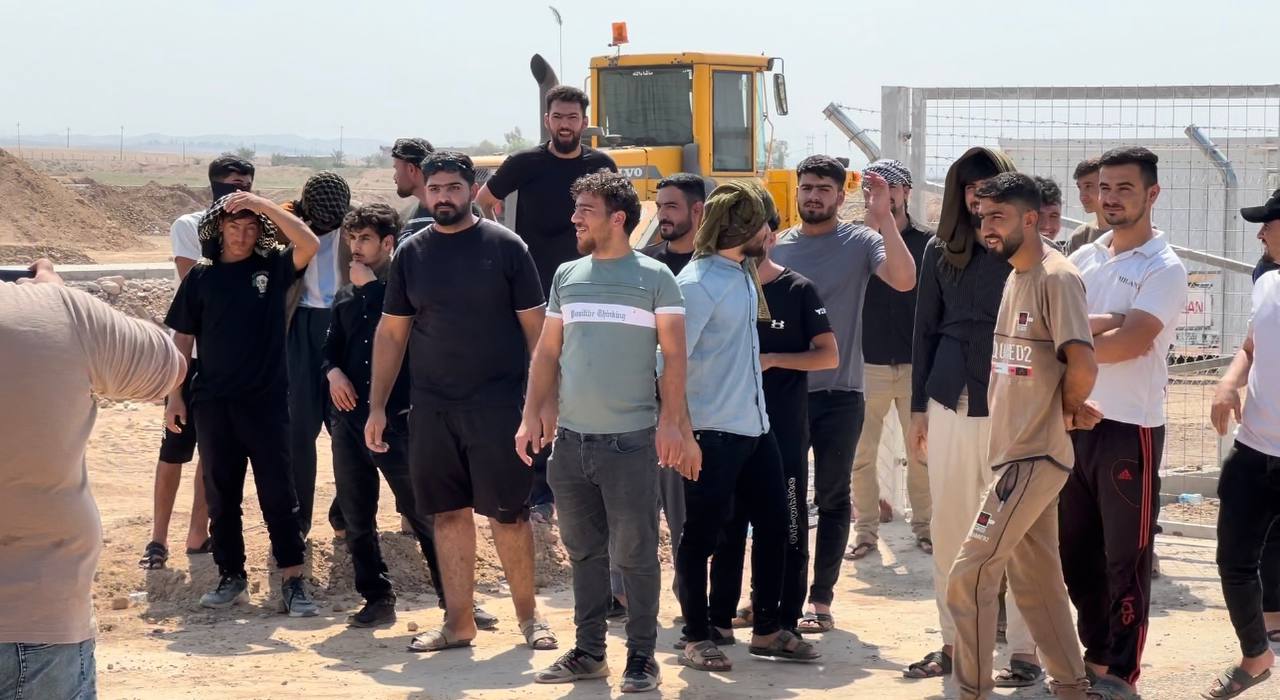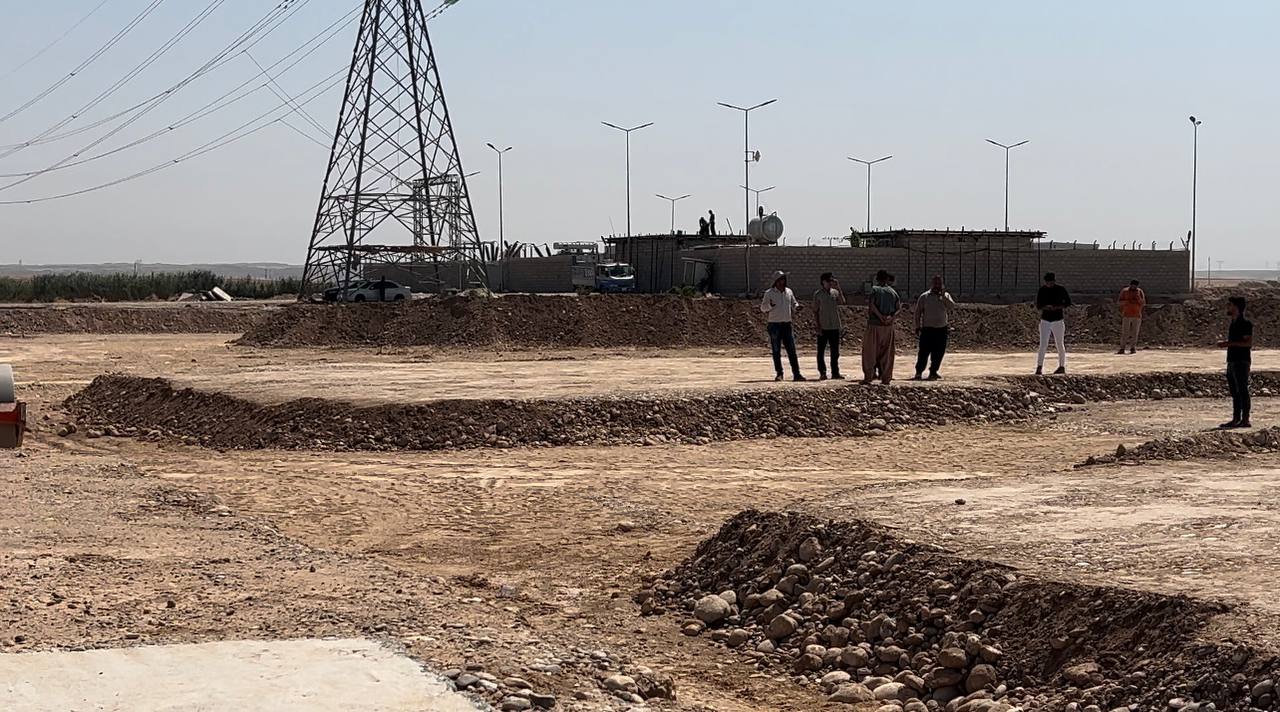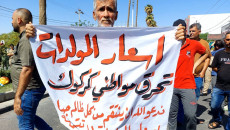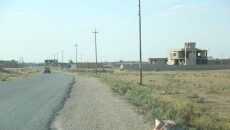Tens of young men from the Talabani area in Daquq district, south of Kirkuk, gathered to demand job opportunities in an electricity project implemented on agricultural land in one of the villages.
KirkukNow correspondent who was present at the gathering organized on July 24 at the project site for installing a power generation station and distribution network said that the protesters threatened to stop the implementation of the project because those in charge of it brought in workers from outside the area.
Habib Fatah Allah, one of the notables of the Talabani area, said that the project is being implemented on agricultural land that belongs to him, "We had no objection to giving them the agricultural land without being compensated, and they promised to provide job opportunities in the project for the young men of the area, but they brought in workers from outside Daquq, which provoked the residents."
The Talabani area is located within the borders of Daquq district (44 km south of Kirkuk) and includes the villages of Yangija, Abdullah Ghanem, Anana, and Sanur, but the electricity project is located in the village of Yangija.
Daquq, 44 km south of Kirkuk, home to 97,000 people, consists of 16 neighborhoods in the center of the district, and tens of villages.
The northern, oil-rich city of Kirkuk, is home to about 1.7 million Kurds, Turkmen, and Arabs, according to the KRG figures in 2018. Located 238 kilometers north of Baghdad, Kirkuk is an ethnically mixed province and has long been at the center of disputes between Baghdad and the Kurdistan Regional Government KRG.
The unemployment rate in Iraq saw no significant changes in 2023 in comparison to the previous year 2022 and remained at around 15.53 percent. Still, 2023 marked the second consecutive decline of the unemployment rate, says Germany-based statista.com, a global data and business intelligence platform with an extensive collection of statistics, reports, and insights on over 80,000 topics from 22,500 sources in 170 industries.
The unemployment rate of a country or region refers to the share of the total workforce that is currently without work, but actively searching for employment. It does not include economically inactive persons, such as children, retirees, or the long-term unemployed.

A protest gathering by young men from the Talabani area in Daquq to demand job opportunities in a power project, Kirkuk, July 2024. Mohammed Almas
Mohammed Hassan, the technical official of the project, told (KirkukNow) that the project is being implemented by a private company and the contractor is responsible for securing the labor force, “not us." He explained that the project would solve the problem of low voltage in Daquq.
The project coincides with a series of service projects in various neighborhoods of Daquq, some of which are implementing tiling and sewage projects for the first time.
Mohammed Younis, the official of the Daquq mobile power station, told (KirkukNow) that "the Daquq electricity distribution network project is built on the lands of farmers in the Talabani area and is scheduled to be completed within 730 days, and upon completion, it will solve the problem of low voltage."
Kirkuk governorate needs more than a thousand megawatts daily to secure the electricity needs of its residents while it is receiving half of the demanded power. The governorate administration relies on 733 private diesel generators to make up for the shortfall in hours of supplying national electricity.
Following gulf war in 1991, the Iraqi state infrastructure was sharply hit by the economic embargo on Saddam Hussein regime due to damage of many transmission lines and substations leaving the basic services provided by the state inadequate.
Few years later, the local authorities gave permission to installation of private diesel generators in the residential neighborhoods to provide power and fill in the national power outage as it could provide only half of the demand on national network of state-subsidized electricity.
The cost of the power provided by private generators is couple of times double of power provided by the state thus people are obliged to consume as less as possible during national power outage in order to pay less for private generators.
Iraq's electricity ministry has cited a number of causes for the prolonged and widespread cuts including sabotage attacks, shortages of fuel for power stations, and lack of budget for periodical maintenance.







